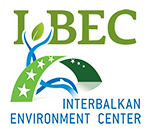Greece: satellite information and field knowledge help farmers reduce fertilisers and water

The user
Founded in 1988, the Agricultural Cooperative of Nestos (A.C. Nestos) is located in Northern Greece, in the Kavala Region. The cooperative serves 70 farms spread on 23,144 sqm of land. In addition to asparagus, cultivated since 1988, the farms grow kiwi plantations since 2004. Kiwi plantations have helped farmers diversify outputs and enter new global markets.
The challenge
As agriculture moved to mass-production, famers regularly increased the quantity of fertilisers and water to raise crop yields. These practices led to sometimes disastrous results, from water loss and soil degradation to ecosystem damage and human water supply contamination.
While yields are under strain to respond to growing market needs, the EU Nitrites and Water Framework Directives require farmers to respect high environmental standards. Locally, the austerity measures taken by the Greek government pushed cooperatives to search for better site-specific crop management solutions.
New technologies can help with such constraints but farmers are often attached to traditional practices. Moreover, high-tech may be expensive and complex to use, which further discourages farmers from using it.
Therefore, without funds and scientific expertise, farmers would rarely afford to move towards low-input agriculture outside well-organised cooperatives.
The satellite solution
A. C. NESTOS offered part of its lands to Agro_less, a project funded under the European Territorial Cooperation Programme Greece-Bulgaria 2007-2013, and led by the Inter-Balkan Environment Center (i-BEC).
I-BEC used Copernicus satellite imagery, in combination with commercial satellite images (PLEIADES) and with data from field sensors, to monitor kiwi and asparagus crops remotely. Additional mobile soil scanners and meteorological stations helped produce real-time soil maps. By assembling all this data into an easy-to-use control dashboard, i-Bec is able to provide farmers with advice on irrigation and crop health. During the project local agronomists were also trained to advise and support local farmers in reducing water and fertilisers.
The result
Since the introduction of the application, the cooperative members reduced their water consumption by up to 60% .The distribution of fertilisers and pesticides has also been improved. Last but not least, the cooperative was able to market healthier products and reach their environmental sustainability targets.
Our products gained an eco-friendly added-value, by being produced in a sustainable way, therefore allowing us to comply with environmental concerns and new customer needs.
Anastasios Karkatzalos, Head Agronomist of A. C Nestos

